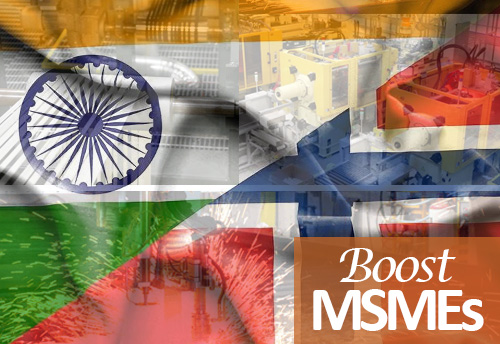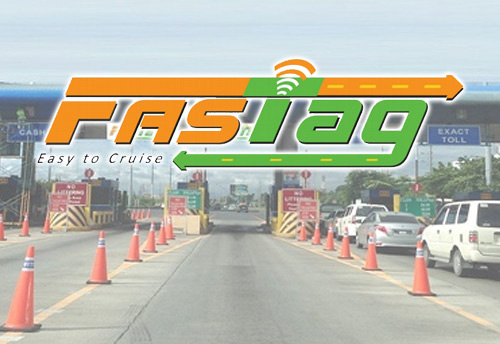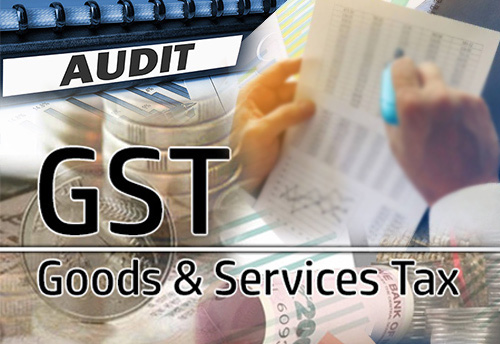We are devoted to provide pure and relevant news to its viewers. "One of the penalties for refusing to participate in politics is that you end up being governed by your inferiors". "We want to be the bridge to the next generation". Let us practice Good governance. It refers to mobilizing the people of a country in the best direction possible. It requires the unity of people in society and motivates them to attain political objectivity. Suggestions to: vselvaraj@vselvaraj.com.
NiFty Television
Friday, January 31, 2020
Economic survey 2019-20
Thursday, January 30, 2020
Highlights from PM narendramodi 's address at the NCC Rally in Delhi
Highlights from PM @narendramodi's address at the NCC Rally in Delhi. pic.twitter.com/smsSe6z1ng— narendramodi_in (@narendramodi_in) January 29, 2020
Budget session of Parliament to commence today. Finance Minister Nirmala Sitharaman to table the Economic Survey 2019-20.
Budget session of Parliament to commence today. Finance Minister Nirmala Sitharaman to table the Economic Survey 2019-20. (File Pic) pic.twitter.com/4paauOsa5r— ANI (@ANI) January 31, 2020
Cabinet Secretary holds high level review on Novel Coronavirus
All travellers from China since 15 Jan 2020 shall be tested for nCoV
- All those who have come from China after 15th January, 2020 shall be tested as there in an incubation period for the virus.
- The Cabinet Secretary has stressed upon the need for 14 days’ home isolation for all those who have returned from China.
- It is also advised that trip to china should be avoided.
- It was also decided to augment the lab facilities.
- Six more labs will start functioning from today:(1) NIV Bengaluru Unit, (2) Victoria Hospital Campus, KR Road, Fort, Bengaluru (3), AIIMS, New Delhi (4), NCDC, Delhi (5) Kasturba Hospital for infectious diseases, Mumbai (8) NIV – Kerala Unit.
- Six more labs will start function by 31st January, 2020: (1) ICMR – NICED, Kolkata (2) GMC, Secunderabad (3) KGMU, Lucknow (4) SMS, Jaipur (5) IGGMC, Nagpur (6) KIPMR, Chennai.
- Discharge portal for patients have been prepared by DGHS which is being disseminated.
- It was decided to put up check-posts in relevant tourist locations for better surveillance.
- Gram panchayats are being organised to make people more aware regarding the symptoms, precautions and measures taken by the State Governments regarding prevention and management for Novel Coronavirus in villages bordering Nepal.
- States have also been advised to open control rooms, appoint a nodal officer and popularize the control room number.
- IEC material is to be prepared in local language by the concerned States.
- Total flights screened: 234
- Total passengers screened: 43346
- National Institute of Virology, Pune is fully geared up to test samples of nCoV.
- Adequate lab reagents are available with NIV, Pune to test 5000 samples.
- 49 samples have been referred to NIV for testing. 48 have tested as Negative.
Ministry of Shipping is on high alert amid the #CoronavirusOutbreak,— Ministry of Shipping (@shipmin_india) January 30, 2020
taking all necessary precautionary measures against it. Directives have been issued by the Ministry for thorough screening of Vessels, Seafarers and Passengers entering all the major & minor ports in India. pic.twitter.com/HJ2LmnSuPO
Wednesday, January 29, 2020
இசைப் போட்டியில் முஸ்லிம் இளைஞர் பாடிய சிவனைப் பற்றிய கர்நாடக சங்கீதப் பாடல்.

Google Developing New ‘Unified’ Communications App for Businesses
The new mobile app, which is currently being tested internally at Google, also includes Hangouts Meet, Google’s video conferencing app and Hangouts Chat, a real-time message app, according to the people. Thomas Kurian, the CEO of Google’s cloud unit, discussed the new app at a conference held in mid-January for the unit’s salespeople and business partners, according to two of the people. The new app is expected to be part of G Suite, the collection of online productivity software that is overseen by the cloud unit, known as Google Cloud.
Tuesday, January 28, 2020
A family narrowly escaped from attack from cheetahs
Omg how stupid can you get, they were so lucky 🤬 pic.twitter.com/E6JEQy6PFs— CCTV_IDIOTS (@cctv_idiots) January 28, 2020
New record as Rs 12000 cr transferred directly in bank accounts of 6 cr farmers: PM Modi
Monday, January 27, 2020
Saturday, January 25, 2020
ADDRESS BY THE PRESIDENT OF INDIA, SHRI RAM NATH KOVIND ON THE EVE OF 71ST REPUBLIC DAY

Friday, January 24, 2020
Thursday, January 23, 2020
Wednesday, January 22, 2020
Tuesday, January 21, 2020
Support for Rajinikanth Pouring in In twitter
Superstar @rajinikanth had cited a 2017 report from Outlook to justify his remarks on Periyar. @gc_s @arivalayam @sgurumurthyhttps://t.co/W1vPHFYlCt— Outlook Magazine (@Outlookindia) January 21, 2020
50 வருஷமா "ராமர செருப்பால அடிச்சோம்டா" ன்னு மீசையை முறுக்கிட்டு பெருமையா சொன்ன நாய்களை "நாங்க ராமர அடிக்கவே இல்ல"ன்னு கதற விட்டார்.
— Ramesh 🇮🇳 (@rameshs79) January 21, 2020
ஒரே ஸ்டேட்மெட் தான். மொத்த திக ideologyயும் குளோஸ்! 😂
"இவன் பேருக்குள்ளே காந்தம் உண்டு உண்மைதானடா" 🔥#மன்னிப்பு_கேட்க_முடியாது#ரஜினிகாந்த் pic.twitter.com/r21QxR5VCR
Shri Edappadi K. Palaniswami working in fields as a farmer
Pleased to see Chief Minister of Tamil Nadu, Shri Edappadi K. Palaniswami working in fields as a farmer, who will never forget his roots. It may be symbolic but it inspires people. Everyone should focus on making agriculture profitable and sustainable. This is the need of hour. pic.twitter.com/cmcnKWaIHU— Vice President of India (@VPSecretariat) January 19, 2020
இந்தியாவைப் புதிய உயரத்திற்கு இட்டுச்செல்வோம்: மனித விருப்பு வெறுப்பை அகற்றி, தொழில்நுட்பத்தை மேம்படுத்தி
இந்தியாவைப் புதிய உயரத்திற்கு இட்டுச்செல்வோம்:— PIB in Tamil Nadu (@pibchennai) January 21, 2020
மனித விருப்பு வெறுப்பை அகற்றி,
தொழில்நுட்பத்தை மேம்படுத்தி#நமதுநம்பிக்கை #HamaraBharosa @FinMinIndia @nsitharaman @PIB_India @DG_PIB pic.twitter.com/SeB26lkX3C
HalwaCeremony marks the beginning of printing of budget documents
#HalwaCeremony marks the beginning of printing of budget documents— PIB India (@PIB_India) January 20, 2020
Finance Minister @nsitharaman and MoS @ianuragthakur relish some halwa during the traditional ceremony with senior officials of @FinMinIndia pic.twitter.com/SeO4ASfTeh
Monday, January 20, 2020
IAF inducts BrahMos-armed Sukhoi-30MKI fighter squadron at Tamil Nadu's Thanjavur
Thanjavur (TN), Jan 20 (ANI): Indian Air Force's Sukhoi-30MKI fighter aircraft on January 20 was inducted at Thanjavur airbase. These fighter jets are equipped with 'special weapon' BrahMos supersonic cruise missile that will manage the requirements in the Indian Ocean.
Taking India to New Heights: Easing access to credit, building tomorrow's Entrepreneurs.
Taking India to New Heights: Easing access to credit, building tomorrow's Entrepreneurs.#HamaraBharosa pic.twitter.com/DB1UOnurH6— Ministry of Finance (@FinMinIndia) January 20, 2020
Pariksha Pe Charcha PM tweeted
As an early riser (by habit) and a late sleeper (due to work), I am not the ideal person to talk about sleep habits and what time to study but on the request of my young friends, I shared my views on the subject...https://t.co/5bimhTosMk— Narendra Modi (@narendramodi) January 20, 2020
PM Modi thanked all students and parents who joined Pariksha Pe Charcha with students Programme
I thank my young friends, their parents and outstanding teachers for joining today’s ‘Pariksha Pe Charcha.’— Narendra Modi (@narendramodi) January 20, 2020
Being among youngsters is wonderful.
Sharing pictures from the occasion. pic.twitter.com/FgWxF9Fr79
Be confident. Do not enter the exam hall with any pressure: PM Modi to students
Sunday, January 19, 2020
Saturday, January 18, 2020
கரும்பு ஜூஸ் Traditional methhod preparation
கரும்பு ஜூஸ் Traditional methhod pic.twitter.com/AbMZ8LiRq5— Selvaraj Venkatesan (@niftytelevision) 16 January 2020
Friday, January 17, 2020
India, Norway discuss ways to boost MSME sector
 India, Norway discuss ways to boost MSME sector
India, Norway discuss ways to boost MSME sectorThe main session on 16th January, 2020 was co-chaired by Joint Secretary, Department of Commerce, Nidhi Mani Tripathi, and Director General, Ministry of Trade, Industry and Fisheries, Erling Rimestad.
The Indian side was represented by officers from Departments of Commerce, DPIIT, Fisheries, Chemicals & Petrochemicals, Economic Affairs, Ministries of External Affairs, Food Processing, Micro, Small and Medium Enterprises, New and Renewable Energy, Power, Science and Technology, Shipping, Tourism and Skill Development & Entrepreneurship.
Budget 2020-21: Downloading of TDS Certificates should be optional as nobody asks for it, MSMEs suggest
 Budget 2020-21: Downloading of TDS Certificates should be optional as nobody asks for it, MSMEs suggest
Budget 2020-21: Downloading of TDS Certificates should be optional as nobody asks for it, MSMEs suggestOne such suggestion is related to TDS which stands for Tax Deducted at Source. It is a system introduced by Income Tax Department, under which the person responsible for making specified payments such as salary, commission, professional fees, interest, rent, etc. is liable to deduct a certain percentage of tax before making payment in full to the receiver of the payment.
In this, there is a mandatory provision to download the Certificate from TRACES Portal after the payment of the TDS, which according some MSME entrepreneurs is of no use.
On one hand when the downloaded TDS Certificate is not required for any future reference, on the other hand not downloading it invites a fine to the tune of Rs 250 per day.
one MSME entrepreneur based in Haryana said, “This provision irritates the employer mostly Micro Small and Medium Enterprises (MSMEs) a lot. MSME units is usually a one man show and the entrepreneur already has a lot on his platter to deal with. A penalty of Rs 250 per day is incurred if the deductor fails to download TDS Certificates.”
How it makes deductor unhappy and why is it necessary, whether the downloading of form 16 and 16 A can be made optional for the deductor or not? To get an answer of these questions KNN India spoke to a Gurugram based industrialist, S K Jain, Managing Director (MD) of Solo Components Private Limited.
Jain said if all the information is available in 26 AS of the income tax, then why is it necessary to download the form from their (Income Tax) website.
''Now, the whole process is automated in the sense that now for every PAN number there is 26 AS form which is available on the net, which is kind of an account of TDS through which we can easily come to know that who has deducted TDS and when it was deducted,'' he said.
He further said that now after this there is really no need of form 16 and 16 A because it is available on the net for everyone adding that' but the rule of downloading these forms and the idea of basically giving it to the suppliers still exists is not required. The department has also associated a penalty, if the form is not downloaded within fifteen days.''
Putting more emphasis to his arguments, he said no body demands but the department forces us to download and questioned that ''why we need to download if you (department) is already keeping the details of the same in 26 AS.''
''The department is not only charging huge amounts as a fine but also inciting people to generate papers. If my TDS is filed online and every details is online then why will I be forced to download,'' he asserted.
He requested that this particular provision shouldn't be mandatory rather downloading of TDS forms should be made optional.
''There shouldn't be any penalty, instead downloading should be made optional so that in case if anybody asks me for the same, I will download it and give it to them,'' he added.
''At least the penalty for not downloading these forms should be eliminated,'' he concluded.
According to a notification by CBDT in July 2018, “It is now mandatory for all deductors to issue TDS certificates after generating and downloading the same from “TDS Reconciliation Analysis and Correction Enabling System” or TRACES Portal.”
Thursday, January 16, 2020
Wednesday, January 15, 2020
Sunday, January 12, 2020
Vehicles without FASTag will be charged double
 Vehicles without FASTag will be charged double toll fee from Dec 1
New Delhi. The long queues at toll plazas on the National Highways will come to an end as the National Highways Authority of India (NHAI) has made FASTag (electronic toll collection system) mandatory for all vehicles from December 1.
However, vehicles coming without electronic tags will be charged double the toll fee. The new rule will make it possible for you to move across highways seamlessly in India without having to stop your car for paying toll tax.
At present, a single dedicated lane is in use at toll plazas for the vehicles equipped with ‘FASTag’ while the other lanes are for the ‘cash payment mode’. From December 1, all the lanes at toll plazas would be Fastag-enabled, while a single lane will be made available for cash payments.
To popularize the use of FASTags, the government is giving FASTags at highway counters for free till December 1, but you will have to recharge it on your own.
FASTags can also be purchased online on Amazon and by visiting websites of different member banks such as SBI, ICICI bank, Axis bank, Paytm Payment Banks, HDFC bank, IDFC First bank, etc. It has also been made available at over 12,000 banks branches of prominent private sector banks like ICICI bank, Axis bank, HDFC bank, etc.
Registration Certificate (RC) of the vehicle, passport-size photograph of the vehicle owner and KYC documents of the vehicle owner are the required documents for buying FASTags
Vehicles without FASTag will be charged double toll fee from Dec 1
New Delhi. The long queues at toll plazas on the National Highways will come to an end as the National Highways Authority of India (NHAI) has made FASTag (electronic toll collection system) mandatory for all vehicles from December 1.
However, vehicles coming without electronic tags will be charged double the toll fee. The new rule will make it possible for you to move across highways seamlessly in India without having to stop your car for paying toll tax.
At present, a single dedicated lane is in use at toll plazas for the vehicles equipped with ‘FASTag’ while the other lanes are for the ‘cash payment mode’. From December 1, all the lanes at toll plazas would be Fastag-enabled, while a single lane will be made available for cash payments.
To popularize the use of FASTags, the government is giving FASTags at highway counters for free till December 1, but you will have to recharge it on your own.
FASTags can also be purchased online on Amazon and by visiting websites of different member banks such as SBI, ICICI bank, Axis bank, Paytm Payment Banks, HDFC bank, IDFC First bank, etc. It has also been made available at over 12,000 banks branches of prominent private sector banks like ICICI bank, Axis bank, HDFC bank, etc.
Registration Certificate (RC) of the vehicle, passport-size photograph of the vehicle owner and KYC documents of the vehicle owner are the required documents for buying FASTags
 Vehicles without FASTag will be charged double toll fee from Dec 1
Vehicles without FASTag will be charged double toll fee from Dec 1Friday, January 10, 2020
கிராமம் சிறந்தது
கிராமம் சிறந்தது pic.twitter.com/fAztZ9zVJ7— Selvaraj Venkatesan (@niftytelevision) January 6, 2020
Despite efforts, MSME bad loans rise: CIBIL
 Despite efforts, MSME bad loans rise: CIBIL
Despite efforts, MSME bad loans rise: CIBILGST authorities begin issuing notices for tax audit exercise
 GST authorities begin issuing notices for tax audit exercise
GST authorities begin issuing notices for tax audit exercise

